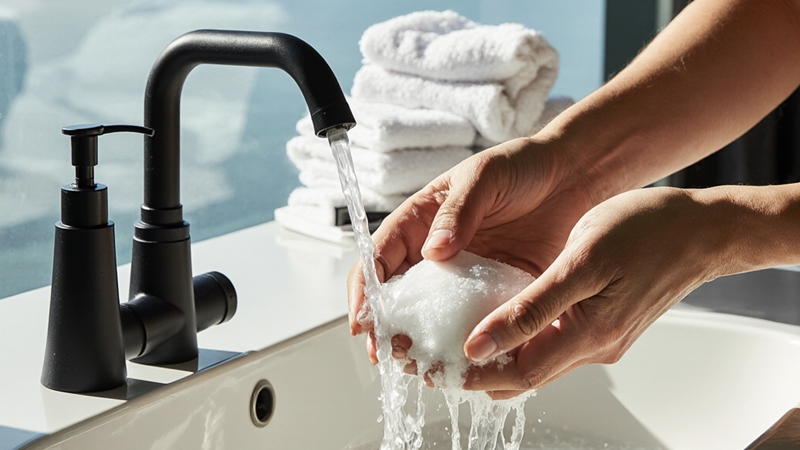Uncategorized
The Best Hand Hygiene Practices for Hotel Guests
Introduction
Hand hygiene is one of the most important ways to protect yourself from germs, bacteria, and viruses. For hotel guests, maintaining good hand hygiene is essential because hotels are busy places where many people come and go, increasing the risk of exposure to germs. Whether you are staying for business or leisure, following proper hand hygiene practices can help you stay healthy and enjoy your trip without worrying about illnesses.
In this blog, we will cover the best hand hygiene practices for hotel guests, including practical tips, common mistakes to avoid, and why these practices are essential for your health.
Why Hand Hygiene Matters for Hotel Guests
Hotels are shared spaces where numerous surfaces are touched daily by many people. Door handles, elevator buttons, light switches, and remote controls are just a few examples of high-touch areas. Hotel guests may unknowingly come into contact with germs and carry them into their rooms or even to other places.
Good hand hygiene helps:
- Reduce the risk of spreading infections
- Protect yourself from illnesses like colds, flu, and stomach bugs
- Keep you and other hotel guests safe
By being mindful of hand hygiene, hotel guests play a crucial role in maintaining a clean and healthy environment.
Key Hand Hygiene Practices for Hotel Guests
-
Wash Hands Frequently
Washing your hands with soap and water is the most effective way to remove germs. Hotel guests should wash their hands:
- Before and after eating
- After using the restroom
- After touching surfaces like elevator buttons, door handles, or keycards
- After coughing, sneezing, or blowing your nose
How to wash hands properly:
- Wet your hands with clean running water
- Apply soap and lather for at least 20 seconds
- Scrub all parts of your hands, including between fingers and under nails
- Rinse thoroughly and dry with a clean towel or disposable paper
-
Use Hand Sanitizer When Soap and Water Are Not Available
Sometimes, hotel guests may not have immediate access to soap and water. In these cases, using a hand sanitizer with at least 60% alcohol is a good alternative. Apply enough sanitizer to cover all surfaces of your hands and rub until dry.
Hand sanitizer is especially useful when:
- Traveling between hotel rooms and public areas
- Waiting in lines at hotel restaurants or reception desks
- After touching shared items like menus, pens, or brochures

-
Avoid Touching Your Face
Germs can easily enter your body through the eyes, nose, or mouth. Hotel guests should avoid touching their face, especially after touching public surfaces. By keeping your hands away from your face, you reduce the risk of infection even if your hands are not perfectly clean.
-
Practice Safe Hand Habits in Hotel Rooms
Hotel rooms are your personal space, but germs can still be present. Hotel guests can maintain clean hands by:
- Cleaning high-touch surfaces like remote controls, light switches, and door handles with disinfecting wipes
- Using a tissue or sleeve when touching bathroom faucets or toilet handles
- Keeping hand sanitizer on your nightstand for easy access
-
Teach Children Good Hand Hygiene
If you are traveling with children, hand hygiene becomes even more important. Hotel guests with children should:
- Encourage frequent handwashing before meals and after play
- Supervise children when using hand sanitizer to ensure they use it safely
- Teach children to cover their mouths when coughing or sneezing
-
Carry Your Own Hygiene Supplies
Hotel guests can protect themselves more effectively by bringing a small hand hygiene kit, including:
- Travel-sized hand sanitizer
- Pack of disinfecting wipes
- Pack of tissues
Having these items on hand makes it easier to maintain good hygiene, especially in busy hotel areas.
Common Mistakes to Avoid
Even aware hotel guests sometimes make mistakes that reduce the effectiveness of hand hygiene:
- Washing hands too quickly or skipping areas like fingernails
- Using hand sanitizer with less than 60% alcohol
- Touching contaminated surfaces immediately after cleaning hands
Being mindful of these mistakes can help hotel guests improve their hygiene habits and stay safer.
Conclusion
Good hand hygiene is a simple yet powerful way for hotel guests to protect themselves and others from illness. By washing hands frequently, using hand sanitizer when needed, avoiding touching the face, maintaining clean hotel rooms, teaching children proper hygiene, and carrying your own supplies, you can significantly reduce the risk of infections.
Hotels are spaces shared by many people, but with consistent hand hygiene practices, hotel guests can enjoy a safe, healthy, and comfortable stay. Remember, keeping your hands clean is not just a personal choice—it’s a responsibility that helps everyone around you stay healthier.
You can easily find more of our blogs on Sanixway blog section!

